The 5th Meeting of the Forum on International Security Studies
The 5th Meeting of the Forum on International Security Studies and
The 8th Meeting of the Southwest Forum
Held in Yunnan University
On November 2-3, 2017, the 5th Meeting of the Forum on International Security Studies and the 8th Meeting of the Southwest Forum was held in Yunnan University under the theme of “Assessment of China’s International Security Environment and Strategic Choice: Past and Present”. The two-in-one event was co-hosted by Yunnan University, University of International Relations (UIR), Shanghai Institute of International Study (SIIS) and the East Asian Institute of National University of Singapore (NUS), and co-organizers of the event were the Research Center of Neighborhood Diplomacy of Yunnan University, the Editorial Department of the Journal of International Security Studies affiliated to UIR, and the Editorial Department of the Journal of International Outlook affiliated to SIIS. About 150 scholars and experts from domestic and foreign universities and research institutes attended the forum.

The opening ceremony
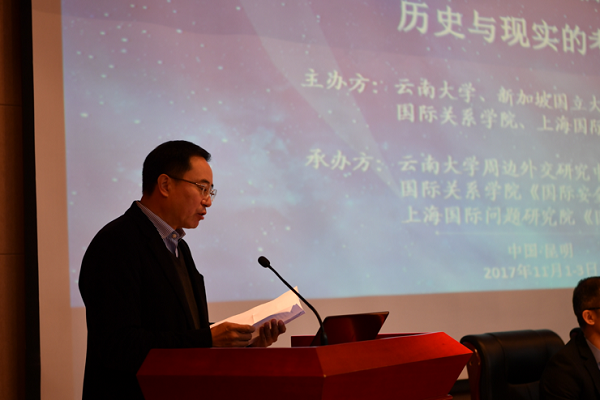
Prof. Yang Lin, Party Secretary of Yunnan University
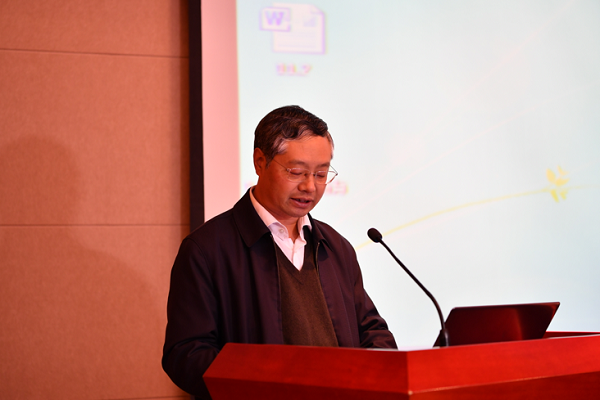
Prof. Lin Wenxun, President of Yunnan University
In a speech delivered at the opening ceremony, Prof. Tao Jian, President of UIR, introduced the development of the Forum on International Security Studies since it was founded. He believed this year’s meeting is unique because it has chosen security as its theme, which corresponds to the need of our country as General Secretary Xi mentioned the word “security” 72 times in his report at the 19th National Congress of the CPC. The combination of two forums in one meeting represents efforts aimed at coordination and sharing of academic resources, and the presence of National University of Singapore has also added an international dimension to the Forum on International Security Studies. This meeting, he said, highlights the geographical elements and stresses in-depth study of Southeast and South Asia based on the advantage of Yunnan University. It has also chosen a clearly-defined theme of exploring the evolution of international security environment, which represents a return to the basics, or the history of international relations studies. Tao borrowed remarks from General Secretary Xi Jinping and claimed that we are now at the starting point of a new era and must look back at our own past and review the experience and lessons of other major powers in their development.
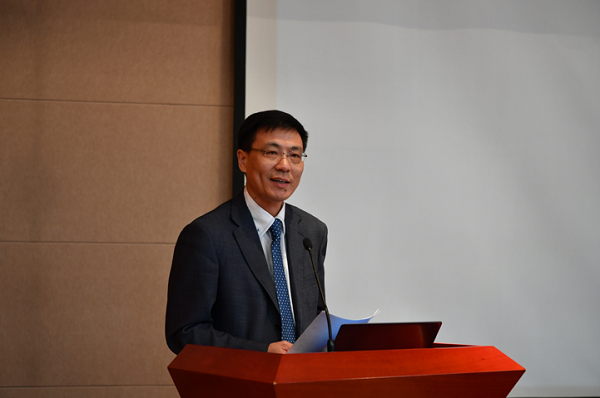
Prof. Tao Jian, President of University of International Relations
Prof. Chen Xiaodong, Director of Shanghai Institute of International Studies, made an opening address. He believed that the new outlook of China’s power diplomacy suggests a rising awareness of its strategic missions, connotations, and environment. Chen also made a keynote speech on “How to Cope with a World and Era of Prominent Instability and Uncertainties”, and pointed out that in order to keep our fingers on the pulse of this era we should develop a global vision based on both past experience and the reality. We should avoid blind optimism or pessimism, and act as fit in correspondence to the situation.

Prof. Chen Xiaodong, Director of Shanghai Institute of International Studies
Liang Fook, Deputy Director of East Asian Institute, National University of Singapore, made a speech at the opening ceremony, in which he expressed the best wishes for and expectations of the meeting. He talked of the profound changes in the relation structures of great powers, and noted that the public goods provided by China are conducive not only to its own interests, but also to world peace and stability. He said, small nations in the international community welcome stable and peaceful relationships between the great powers and hope to have an open and accommodative international order where all governments may pursue their own goals through different paths.
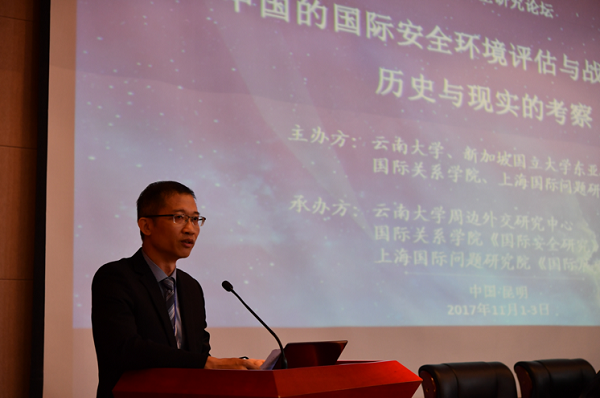
Liang Fook, Deputy Director of East Asian Institute, National University of Singapore
Guan Mu presided over the keynote speeches ensuing the opening ceremony. He is the former Chinese Ambassador to Burma and Thailand, and Counselor to the Research Center of Neighborhood Diplomacy of Yunnan University. Keynote speakers included Prof. Zhang Yunling, Member of the Chinese Academy of Social Sciences and Director of the Academic Division of International Studies, Major General Zhu Chenghu, former Dean of Teaching and Research Department of Strategy of the National Defense University, Prof. Chen Dongxiao, Director of Shanghai Institute of International Studies, Prof. Yang Shu, Director of Research Center for Central Asia of Lanzhou University, Prof. Li Chenyang, Director of the Office of Social Sciences of Yunnan University, and Tan Xiuying, Chief Editor of the Journal of International Security Studies of UIR.
Prof. Zhang Yunling pointed out in his keynote speech entitled “China’s National Image and Its Peripheral Relations” that the image of China in its neighbors’ eyes is in transition. Defined as a new type of power, China still needs more time and deeds to further clarify its image, which might hang on its own sustainable progress and acceptability by other countries. In the foreseeable future, it will be observed, comprehended, accepted and responded to in different perspectives, and it has no better test field than its own neighborhood for its strategies, commitments and ambitions.
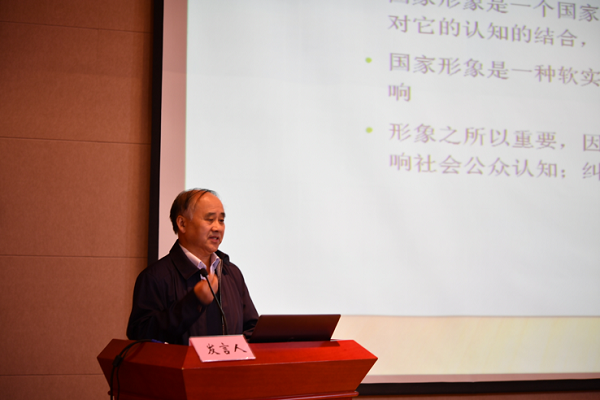
Prof. Zhang Yunling, Member of the Chinese Academy of Social Sciences, Director of the Academic Division of International Studies of CASS
Major Gen. Zhu Chenghu made a speech entitled “The Peripheral Strategy of the Trump Administration ”. In his view, America’s global strategy is to establish world hegemony by pressing Russia and containing China through domination of the Atlantic and Pacific Oceans. America’s strategy toward China is best described as political evolution, economic kidnapping, and military containment.
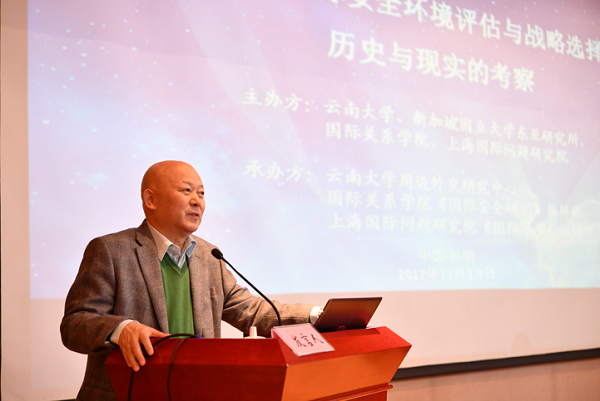
Major Gen. Zhu Chenghu, former Dean of the Teaching and Research Department of Strategy, National Defense University
Prof. Yang Shu noted in his keynote speech entitled “Several Basic Features of China’s Neighborhood” that China has the most neighboring countries and the most complex peripheral relations. We need more in-depth research of our peripheral environment and of our neighbors, and should not view relations with other countries through idealistic lenses.
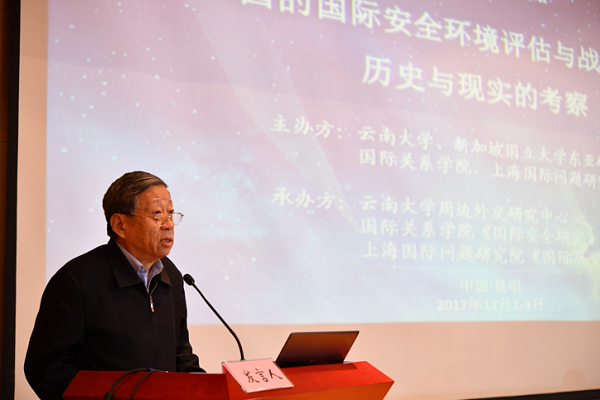
Prof. Yang Shu, Director of the Research Center for Central Asia of Lanzhou University
Prof. Li Chenyang delivered a keynote speech entitled “An Analysis on China’s Assessment and Response to the Security Situation in Southeast Asia after the Cold War”. He observed that international relations in Southeast Asia after WWII have evolved along two directions. On the one hand, countries in this region strive to take their fate in their own grip and to have dominance in regional relations; on the other hand, powers from outside this region including the U.S. and Russia attempt to intervene and control the direction of regional international relations. In his view, countries in this region will not necessarily side with China; in the long run, they most probably adopt a strategy of equilibrium among major powers toward China.

Prof. Li Chenyang, Director of the Office of Social Sciences, Yunnan University
Tan Xiuying, Chief Editor of the Journal of International Relations, after reviewing the past meetings of the Forum on International Security Studies, appealed to the participants to give more attention to the accumulation of middle-range and micro-research theories, which may take years to build up. She said, only by sorting out the clues of security issues in China can we tell a good China story to the world.
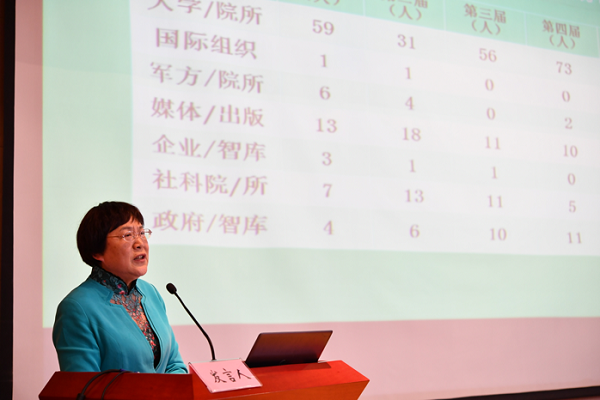
Tan Xiuying, Chief Editor of the Journal of International Security Studies, University of International Relations
General Secretary Xi Jinping pointed out at the 19th National Congress of the CPC that this era will witness China moving closer to the center of the world stage and making greater contributions to mankind. China should pursue a holistic approach to national security, follow a path of peaceful development, build a community with a shared future for mankind, and forge a new form of international relations featuring mutual respect, fairness, justice, and win-win cooperation. So this meeting, convened at such a time, is highly relevant to reality and important in the field of theoretical research in that it focuses studies and discussions on the latest hot issues of interest in China, including state security in the new era, new outlook of international relations, the Belt and Road Initiative, and the building of a community of shared future for humanity.
During the two-day meeting, participants discussed and exchanged views on topics including “A Study on Xi Jinping’s Diplomatic Thoughts and Holistic Approach to National Security”, “China’s Cognition and Strategic Choice of International Security Environment since 1949”, “New Geopolitics and Changes in China’s Peripheral Security Environment”, “Research on Innovations in the Theory and Practice of China’s Peripheral Diplomacy”, “Cross-border Security and Regional Security Governance”, and “Maritime Security and Cooperation”.
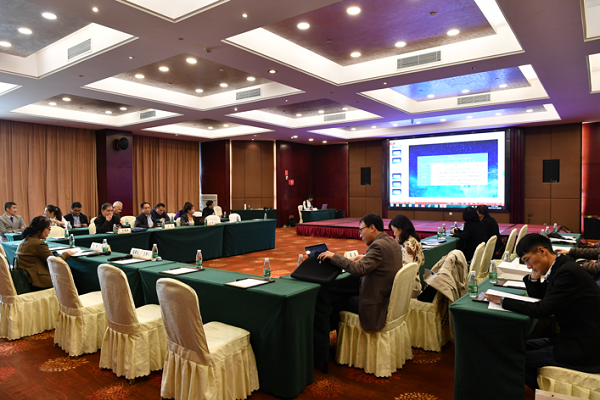
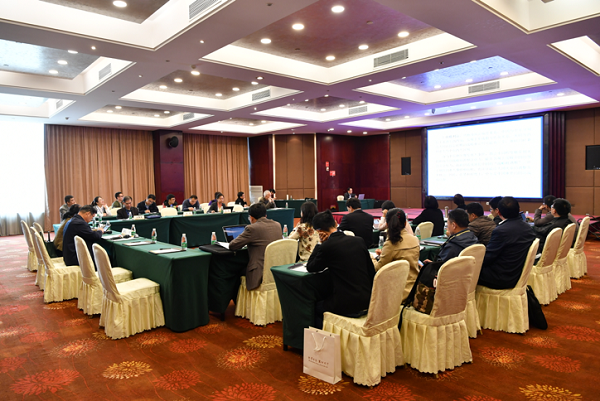

Parallel sessions of the meeting
After Prof. Li Chenyang from Yunnan University made the concluding speech, the flag of the Forum on International Security Studies was handed over to representatives of Hubei University of Nationalities, the host and organizer of the next annual meeting.
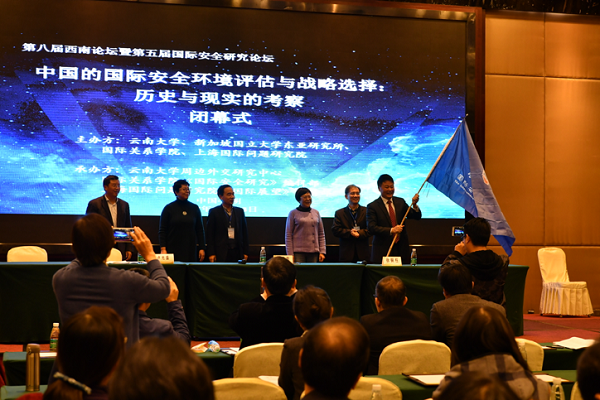
The flag handover ceremony for the Forum on International Security Studies
This two-in-one meeting would not have been successful without efforts of the staff of two influential forums. The Forum on International Security Studies is an annual event launched by the Journal of International Security Studies, UIR, in 2013. Focusing on topics about theories and practice in international security, five annual meetings of the Forum have been held, which are actively participated by a host of reputable institutions in the academic circle around the country. The Southwest Forum, co-founded by the Institute of International Studies of Yunnan University and East Asian Institute of National University of Singapore in 2010, is also held annually and aims to join the academics in southwest China with their counterparts in the world and to contribute ideas and wisdom to the economic and social development in Yunnan Province and the southwestern region of China.
